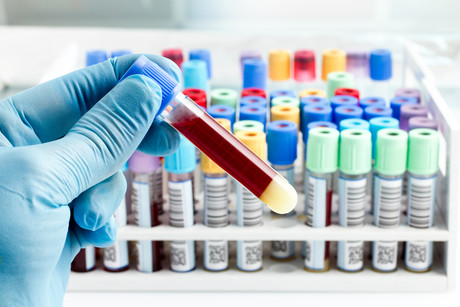One blood test to screen for eight cancers

A US-led research team has developed a liquid biopsy for the early detection of eight common cancers, diagnosing tumours before they spread and helping to identify the location of the cancer.
The blood test was developed by researchers at Johns Hopkins University School of Medicine, with assistance from collaborating organisations elsewhere in the US as well as Australia and Italy. Dubbed CancerSEEK, it has been described in the journal Science.
The non-invasive blood test simultaneously evaluates levels of eight common cancer proteins and the presence of cancer gene mutations from DNA circulating in the blood. It screens for cancer of the lung, breast, bowel, ovary, liver, stomach, pancreas, oesophagus — five of which have no current screening tests for average-risk individuals.
“Circulating tumour DNA mutations can be highly specific markers for cancer,” said first author Joshua Cohen, an MD-PhD student at Johns Hopkins. “To capitalise on this inherent specificity, we sought to develop a small yet robust panel that could detect at least one mutation in the vast majority of cancers. In fact, keeping the mutation panel small is essential to minimise false-positive results and keep such screening tests affordable.”
The investigators initially explored several hundred genes and 40 protein markers, whittling the number down to segments of 16 genes and eight proteins. It is solely aimed at cancer screening, unlike other molecular tests which rely on analysing large numbers of cancer-driving genes to identify therapeutically actionable targets.
“The use of a combination of selected biomarkers for early detection has the potential to change the way we screen for cancer, and it is based on the same rationale for using combinations of drugs to treat cancers,” said senior author Nickolas Papadopoulos, a professor at Johns Hopkins.
Study co-author Professor Peter Gibbs, from Melbourne’s Walter and Eliza Hall Institute (WEHI), said blood tests that can detect the early stages of cancer, before symptoms are present, are urgently needed as cancer mortality rates are directly related to how advanced a cancer is at diagnosis.
“While screening tests for some cancers have already been developed, and are associated with earlier diagnosis and better outcomes, for many major tumour types there are no effective screening tests,” he said. “The currently available screening tests can also be unpleasant, have associated risks and uptake can be low. Significantly, each test can only screen for one cancer at a time.”
“If we are going to make progress in early cancer detection, we have to begin looking at it in a more realistic way, recognising that no test will detect all cancers,” added Professor Bert Vogelstein, a co-author on the study from Johns Hopkins.
“This test represents the next step in changing the focus of cancer research from late-stage disease to early disease, which I believe will be critical to reducing cancer deaths in the long term.”
The test was evaluated on 1005 patients with non-metastatic cancer from stages I to III and 812 healthy controls. The median overall sensitivity, or the ability to find cancer, was 70% and ranged from a high of 98% for ovarian cancer to a low of 33% for breast cancer. For the five cancers that have no screening tests — ovarian, liver, stomach, pancreatic and oesophageal — sensitivity ranged from 69–98%. Specificity was greater than 99%, meaning that less than 1% of controls had a false positive result from the test.
“Very high specificity was essential because false-positive results can subject patients to unnecessary invasive follow-up tests and procedures to confirm the presence of cancer,” said Johns Hopkins Professor Kenneth Kinzler, a co-author on the study.
WEHI Associate Professor Jeanne Tie, a co-author on the study, said CancerSEEK has the potential to be a one-stop, safe screening test for multiple tumour types that would likely otherwise go undetected.
“For the first time we have the promise of a screening test that will lead to earlier diagnosis and improved survival outcomes for many tumour types that are major contributors to cancer deaths in our community,” she said.
CancerSEEK can, in principle, be administered by primary care providers at the time of other routine blood work. With larger studies currently underway, the investigators envision that the test will eventually cost less than US$500.
Simulated microgravity affects sleep, physiological rhythms
The simulated effects of microgravity significantly affect rhythmicity and sleep in humans, which...
Hybrid insulin pumps work well for type 1 diabetes
Advanced hybrid closed loop (AHCL) insulin pumps are designed to constantly measure blood sugar...
3D-printed films provide targeted liver cancer treatment
Researchers have created drug-loaded, 3D-printed films that kill more than 80% of liver cancer...







